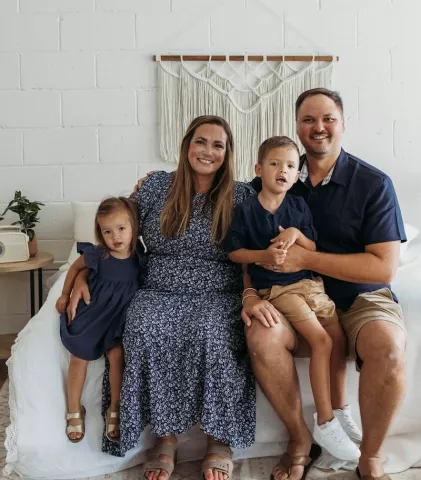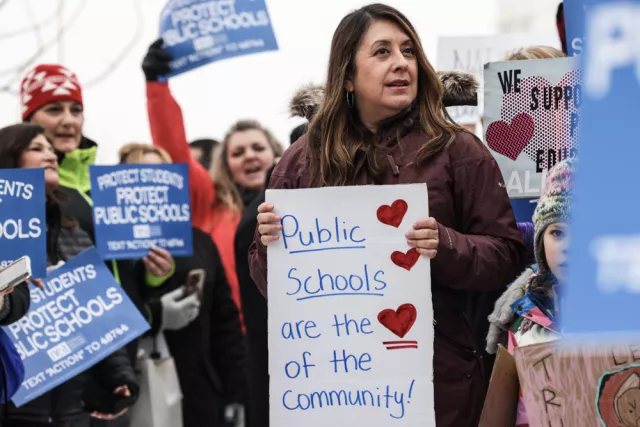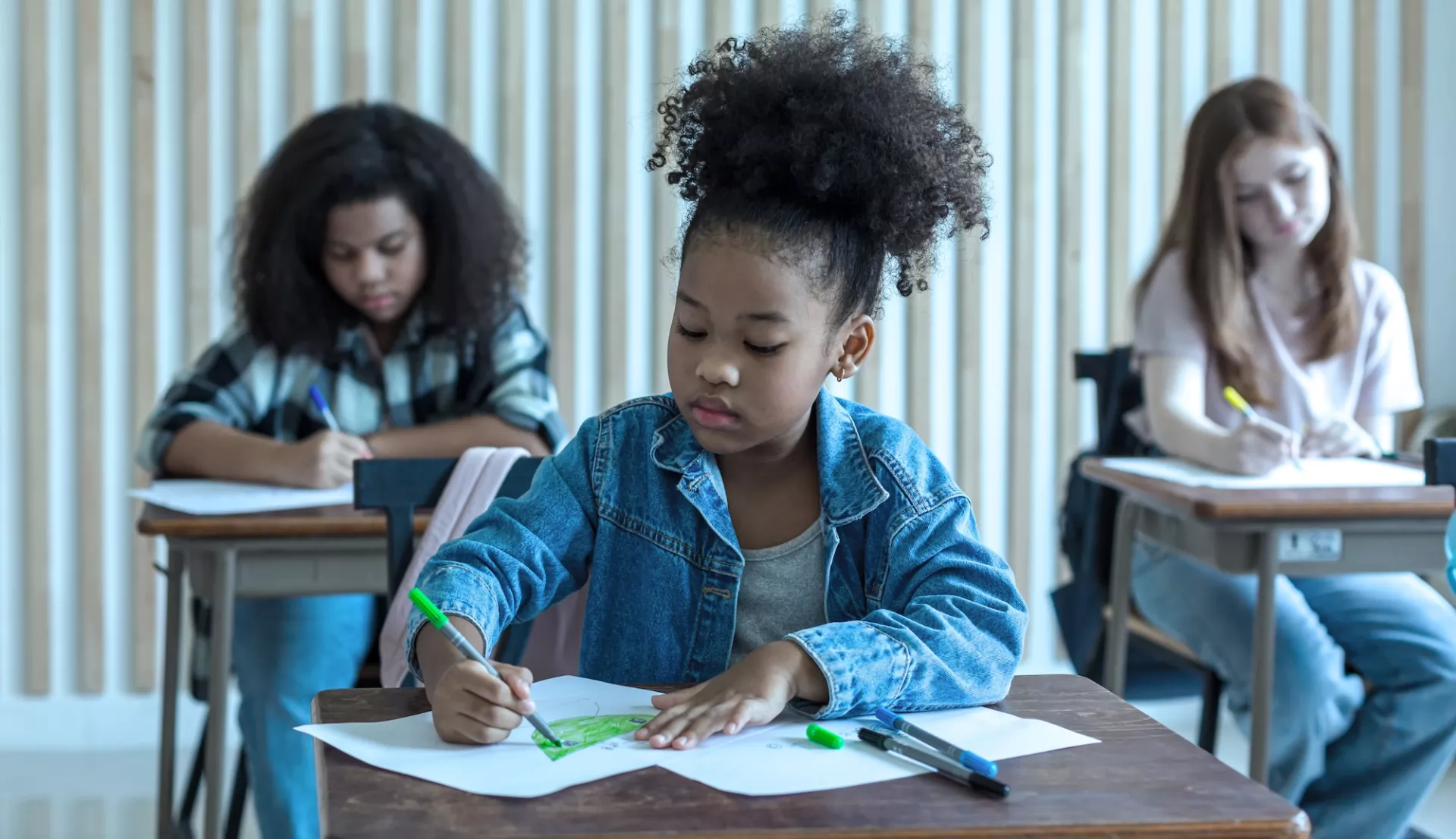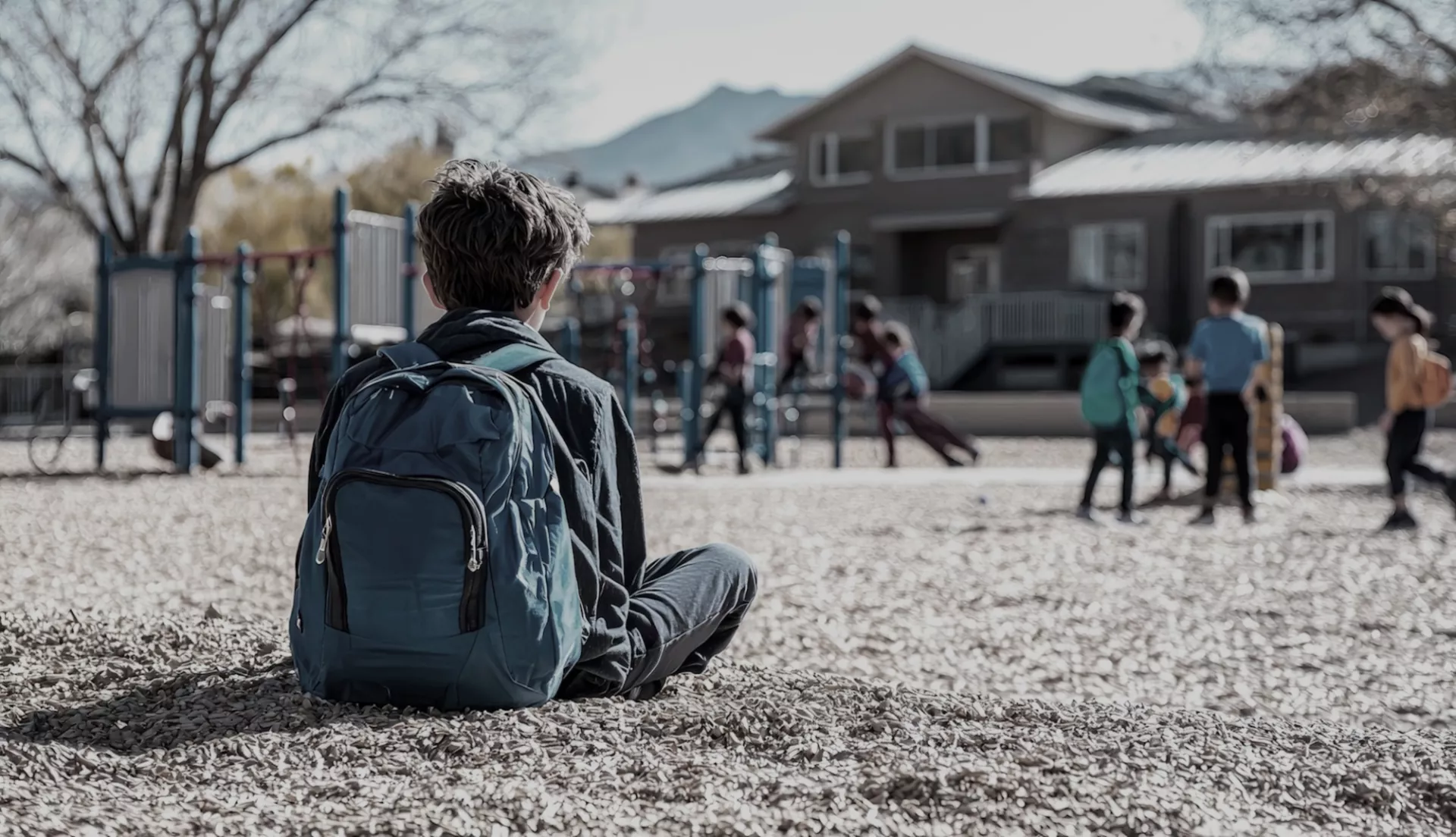Key Takeaways
- One of the main roles of the U.S. Department of Education is to supplement state resources for the 7.5 million students with disabilities.
- Halting federal oversight and shifting the implementation of special education programs to the states will put student rights in jeopardy.
- Many private schools can't offer accommodations for students with significant disabilities or complex support requirements, let alone guarantee their rights are upheld. And in rural communities, the number of private schools is all but nonexistent.
Jackson Tuell is an energetic 5-year-old who loves waffles, jumping on the trampoline, and playing with his sister, Charlie. Jackson is also autistic, non-verbal, and struggles in most academic and social environments.
“But don’t let that fool you,” says his father Nick Tuell, of Lebanon, Ohio, “Jackson shows a desire to learn, play with his peers, and always tries again after failure.”
Thanks to Jackson’s public school and his Individualized Education Program (IEP) -- the written plan that outlines the special education services, accommodations and goals tailored to meet the needs of a child with a disability in public school -- Tuell and his wife have been very optimistic about his education and his future.
“He is empowered to grow and is able to communicate his needs to those around him,” Tuell says.
But after threats from the Trump administration to gut the federal role in education, their optimism has dimmed.
“Our story isn’t unique, families across the country depend on these programs to ensure our kids receive the tailored services they need to succeed in school and beyond,” Tuell wrote in an op-ed for the Ohio Capital Journal. “Yet today, these programs and Jackson’s future face significant threats.”
What Could Be Lost
Tuell and many other parents of children with disabilities worry what eliminating the U.S. Department of Education (ED) will mean for their kids. They fear that halting federal oversight and shifting the implementation of special education programs to the states will put their rights in jeopardy.
One of the main roles of ED is to supplement state resources for the 7.5 million students with disabilities through the Office of Special Education Programs (OSEP), which is dedicated to "improving results for infants, toddlers, children and youth with disabilities."
The Trump administration has called for moving some of ED’s roles to other agencies, but how or where remains unclear.
Through the Individuals with Disabilities Education Act (IDEA), and enforced by ED, parents of public school students with disabilities served under IDEA are guaranteed the right to advocate and develop IEPs for their children depending on their specific needs.
These are rights guaranteed under the law for public school students. Private schools don’t have to offer the same services covered by an IEP; in fact, many of them can't offer accommodations for students with significant disabilities or complex support requirements, let alone guarantee their rights are upheld. And in rural communities, the number of private schools is all but nonexistent.

The best and only choice, say many parents of children with disabilities, is their neighborhood public school.
Without the ED, however, they wonder if their public schools will have enough money to staff special educators and continue providing the supports and services their students are guaranteed under IDEA.
And if states get block funding, they ask, who will make sure it goes toward special education?
With no federal funding or oversight, the likely outcome will be “fewer teachers, fewer funds, delayed funds, and less certainty,” Dan Stewart, an attorney at the National Disability Rights Network, told the New Yorker.
The devil is in the details, as the saying goes, and the details could indeed be grim. Students with disabilities could lose access to specialized support services, such as speech and occupational therapy and behavioral interventions. There would be a lack of oversight for guaranteed legal protections against discrimination, opening the door for schools to segregate or exclude them and taking the country backwards by decades.
In fact, the majority of complaints of discrimination filed with ED are about the denial of special education services. The ED works to resolve those complaints through voluntary compliance agreements, not lawsuits. If ED went away that compliance focus and expertise would as well, making it far less likely that parents could secure any effective and timely remedy.
The loss of federal funding could force districts to lay off teachers, particularly special education teachers and paraprofessionals who are highly trained to address the needs of students with disabilities.
‘They Deserve More Support’
While Elon Musk takes a chainsaw to federal programs, concern for those details is left to parents who are already overburdened.
Christine Matthews admits it’s not easy being a parent of a child with a disability. It comes with a lot of worry.
“We worry about how they will do in the classroom, at recess, in the lunchroom, and anywhere they may venture during their school day,” she says.
Matthews’s daughter has an intellectual disability, a progressive neurological condition, and sensory impairments, but her public school in the Avonworth School District just outside Pittsburgh, Pennsylvania, put Matthews’s worried mind at ease.
“She’s integrated into a regular classroom because of the outstanding educational support offerings at our school district,” Matthews says. “She learns alongside her neurotypical peers with the support of amazing special educators and paraprofessionals who make and implement modifications for her that ensure her success in the classroom.”
She knows much of this wouldn’t be possible without special education paraeducators whose positions are made possible in part by federal funding.
Matthews points to special paraeducator Becky Marszalek, who worked daily with her daughter from kindergarten through fourth grade, helping her communicate with assistive technology, helping her learn to read and write her name, to add and subtract, and how to interact and feel part of a group of peers.
“Becky had endless patience and went above and beyond to care for our daughter, quickly becoming one of the most trusted adults in her life,” Matthews says.
“Simply put, our daughter would be lost in the shuffle of the busy school day without the commitment of our dedicated special education and support staff. Losing funding and the current oversight that goes with it would devastate special education services and the families that rely on them.”
Pennsylvania received $428 million for IDEA programs supporting special education services for hundreds of thousands of the state’s students with disabilities up to age 21 in the 2022-23 fiscal year.
“Students with disabilities and their families living in rural, suburban, and urban communities count on federal investments to support their public education,” says Pennsylvania State Education Association President Aaron Chapin.
They deserve more support, not less, he says, cautioning that families will pay a steep price if the department that distributes and oversees federal funding is dismantled and tossed aside.
“If you reassign the ED's responsibilities to oversee services for students with disabilities across different federal agencies with no expertise in this area, it is a recipe for chaos,” Chapin says. “We do not want to see funding or services for students with special needs delayed or impeded.”
NEA, PSEA, and the other NEA state affiliates across the country hear parent concerns and will fight for ED and federal funding.
“With legal action, we will protect our students; using legislative action, we will protect our educators,” says NEA president Becky Pringle. “We will rise up in every community across this nation.”






